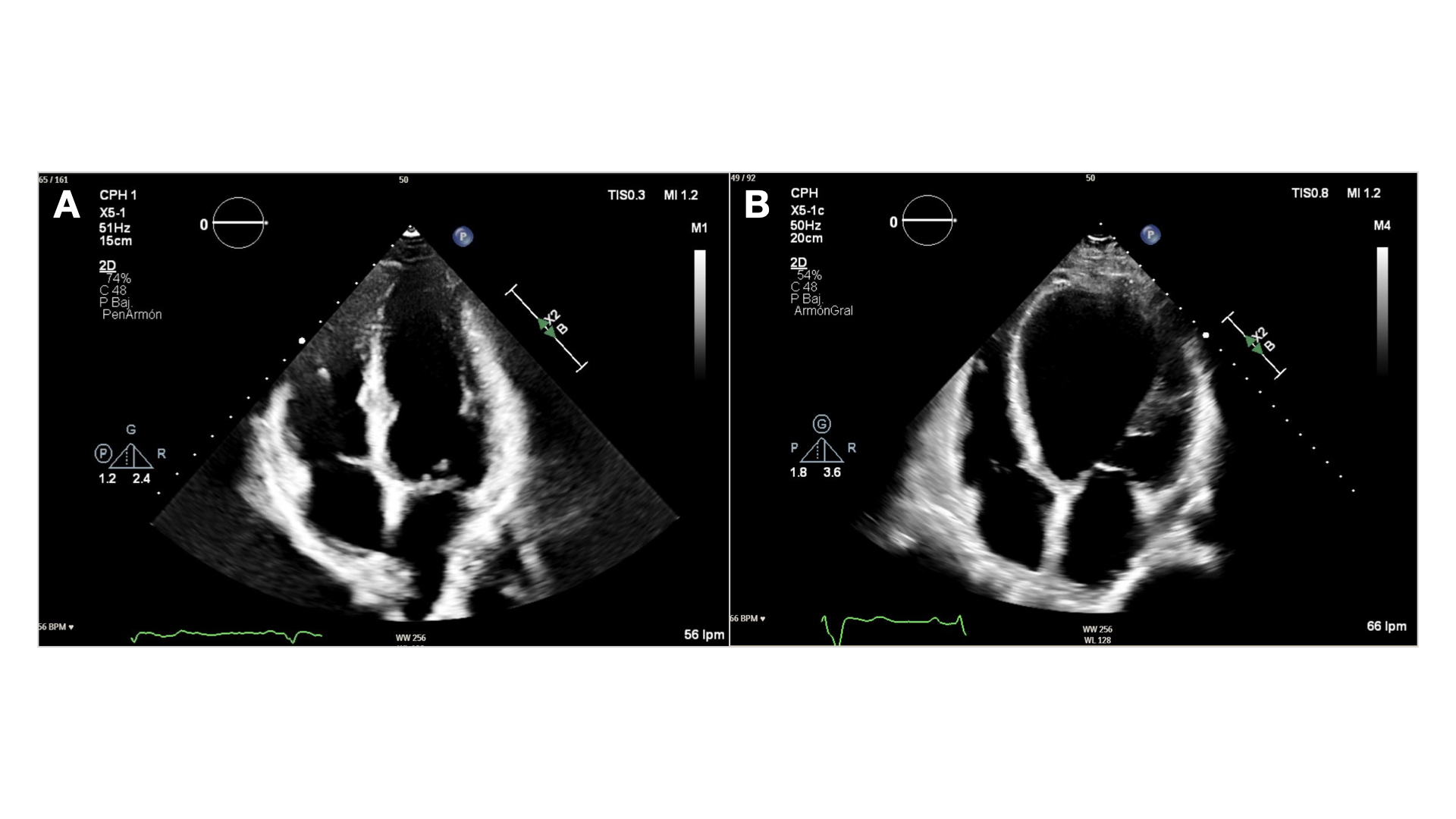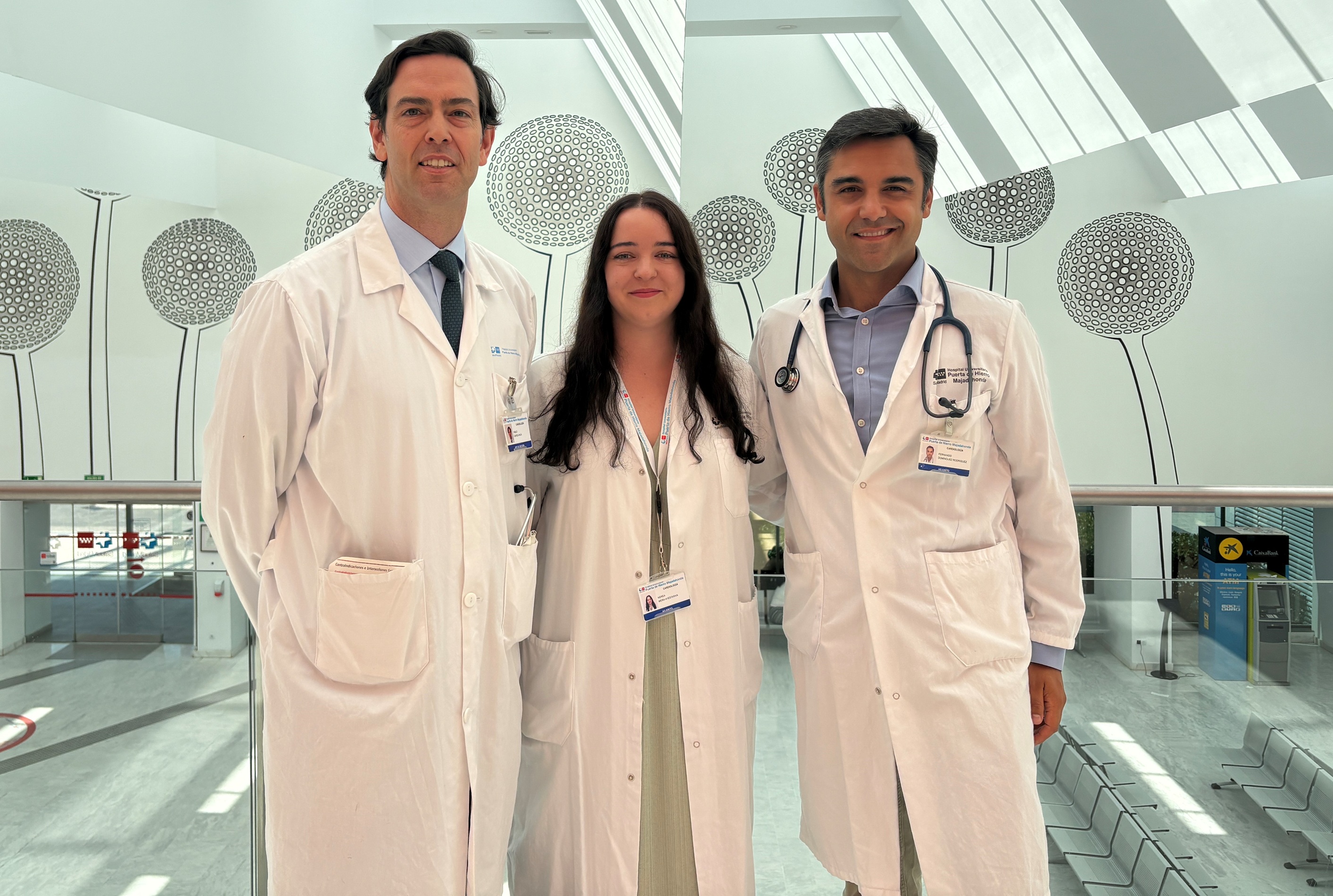European Heart Journal: Genes linked to sudden cardiac death increase the risk of heart failure in patients with genetic dilated cardiomyopathy
Scientists at the Centro Nacional de Investigaciones Cardiovasculares (CNIC), together with cardiologists from Hospital Universitario Puerta de Hierro and the Spanish cardiovascular disease research network (CIBERCV), report that the new discovery makes it possible to identify high-risk patients early and refer them sooner to specialized heart failure units
A Spanish study led by Dr. Pablo García-Pavía and Dr. Fernando Domínguez -investigators at the Centro Nacional de Investigaciones Cardiovasculares (CNIC) and cardiologists at Hospital Universitario Puerta de Hierro and the Spanish cardiovascular disease research network (CIBERCV)—shows that patients with genetic dilated cardiomyopathy who experience severe arrhythmias are at an elevated risk of developing advanced heart failure and requiring a heart transplant. The study, published in the European Heart Journal, was conducted through collaboration among 19 Spanish hospitals and the analysis of more than 1,200 patients.
Dilated cardiomyopathy is one of the leading causes of heart failure in young people and is the main cause of heart transplantation worldwide. The disease is characterized by enlargement of the heart and a reduced ability to pump blood. This can lead to arrhythmias and, in some cases, sudden cardiac death.
This condition can have multiple causes, but in many cases results from genetic mutations. Not all mutations have the same effect, with alterations to some genes driving faster and more severe disease progression. The new study demonstrates that patients with mutations in genes known to be associated with severe arrhythmias and sudden cardiac death (LMNA, FLNC, PLN, TMEM43, RBM20, and desmosomal genes) are also more likely to develop serious heart failure complications. These patients face a higher likelihood of needing a heart transplant, requiring ventricular assist devices, or even dying due to disease progression.
Individualized follow-up
“Understanding the specific characteristics of different genetic subtypes of dilated cardiomyopathy is the first step toward individualized treatment for patients with this disease,” explains Nerea Mora Ayestarán, a cardiologist at Hospital Universitario Puerta de Hierro and first author on the study.
According to the researchers, the new finding has important clinical implications, allowing high-risk patients to be identified early and referred sooner to specialized heart failure units. The discovery also underlines the importance of initiating treatments to slow disease progression as soon as possible—even when heart dysfunction is still mild.
The authors point out that many of these patients are young and may have no symptoms at diagnosis, underscoring the importance of early detection and personalized monitoring. These results contribute to the advancement of precision medicine and highlight the need to develop more targeted treatments for this form of cardiomyopathy.
The study was possible thanks to the collaboration of 19 Spanish hospitals caring for patients with inherited heart diseases. “Spain is one of the countries with the largest number of units dedicated to these conditions,” notes Fernando Domínguez.
“It is a source of pride for our country and the collaboration developed between centers over many years. It is rare to see such clear international recognition of Spanish leadership in a medical field,” say García-Pavía and Domínguez.
The intense activity of Spanish research groups in this area has positioned Spain as a global reference, participating in and leading major advances in precision medicine for heart diseases. “In recent years we have developed new treatments that target the mechanisms that cause the disease, whereas previously we could only treat its consequences and complications,” explains García-Pavía. “The future is very promising; we are already developing gene therapy and gene-editing drugs to correct DNA mutations or replace the defective gene,” the researchers conclude.
This work has received funding from the Instituto de Salud Carlos III (PI20/0320), co-financed by the European Regional Development Fund/European Social Fund (‘A way to build Europe’ / “Investing in your future”), and the Pathfinder Cardiogenomics Programme of the European Union’s European Innovation Council (project DCM-NEXT; project 101115416).











